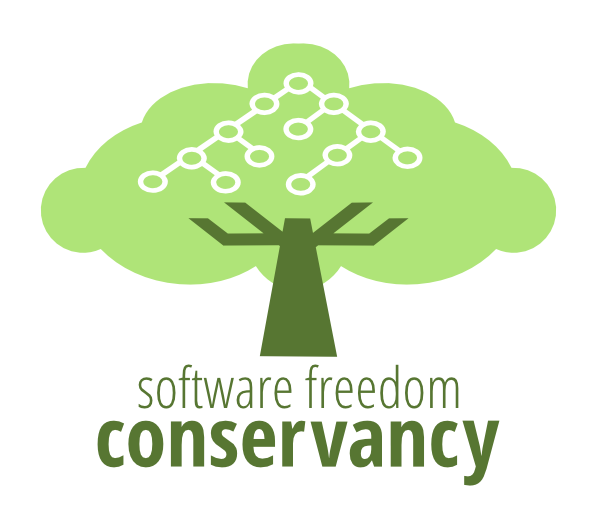
Committee On AI-Assisted Programming and Copyleft To Convene in Early March; Public Discussion To Begin Immediately
February 23, 2022
Software Freedom Conservancy announces a Committee On AI-Assisted Programming and Copyleft to develop recommendations and plans for a Free and Open Source Software (FOSS) community response to the use of machine learning tools for code generation and authorship. The ethics and morality of machine learning models, which are
regularly being applied to many problems, are a serious concern to policy makers. This Committee will focus on the specific issue of AI-assisted programming using models trained with FOSS, such as we’ve seen with GitHub’s Copilot product.
Microsoft, through their GitHub subsidiary, argues, without evidence, that use of Copilot (which has been trained with a large body of FOSS) is “fair use” of that FOSS, and that all output of Copilot is solely copyrighted by its users. This conclusion focuses on the legal details of issues rather than ethics and morality, and Microsoft and GitHub have refused to provide backing evidence. This Committee will focus on the ethics and morality
of their position, and consider the proper policy positions for the FOSS community and copyleft activists in the advent of AI-assisted programming.
Software Freedom Conservancy announces a Committee On AI-Assisted Programming and Copyleft to develop recommendations and plans for a Free and Open Source Software (FOSS) community response to the use of machine learning tools for code generation and authorship. The ethics and morality of machine learning models, which are
regularly being applied to many problems, are a serious concern to policy makers. This Committee will focus on the specific issue of AI-assisted programming using models trained with FOSS, such as we’ve seen with GitHub’s Copilot product.
Microsoft, through their GitHub subsidiary, argues, without evidence, that use of Copilot (which has been trained with a large body of FOSS) is “fair use” of that FOSS, and that all output of Copilot is solely copyrighted by its users. This conclusion focuses on the legal details of issues rather than ethics and morality, and Microsoft and GitHub have refused to provide backing evidence. This Committee will focus on the ethics and morality
of their position, and consider the proper policy positions for the FOSS community and copyleft activists in the advent of AI-assisted programming.
The Committee will operate transparently, in conjunction with an archived email list discussion open to the public. The Committee will meet monthly and provide minutes of meetings contemporaneously to a public email list. Members of the Committee will engage with others publicly, and continually consider possible expansion of the Committee membership. The inaugural members of the Committee are: Matthew Garrett, Benjamin Mako Hill, Bradley M. Kuhn, Heiki Lõhmus, Allison Randal, Karen M. Sandler, Slavina Stefanova, David ‘Novalis’ Turner, and Stefano ‘Zack’ Zacchiroli.
The Committee may ultimately expand its charter, but the initial key questions the Committee will consider are:
- Does training an AI model using copylefted software circumvent the intention of copyleft to assure software freedom for modified versions of the software?
- When output of the AI-assistance system is substantially similar to known copylefted software, should that violate copyleft?
- What changes to copyleft licenses might be necessary to address issues of AI-assisted software development?
- What actions can copyleft activists take in the near term to mitigate problems and reduce any threats while investigation into longer-term solutions continues?
Recently, the Policy Fellow at Software Freedom Conservancy, Bradley M. Kuhn, published an essay discussing these issues. That essay shares Software Freedom Conservancy’s initial views on the matter. However, we have gathered a Committee of individuals who each have their own perspectives. We seek to bring together divergent views throughout the FOSS community on this matter. For example, copyleft and GPL activists have long disagreed about the extent to which copyleft should exploit increasingly Draconian copyright rules. We expect divergent viewpoints on this matter to remain central in discussions of the Committee.
We immediately invite the community to join the mailing list and share their thoughts and concerns about these topics. We firmly believe that discussion on key policy issues of software rights and freedoms should always proceed as transparently and as open to the public as is feasible.
